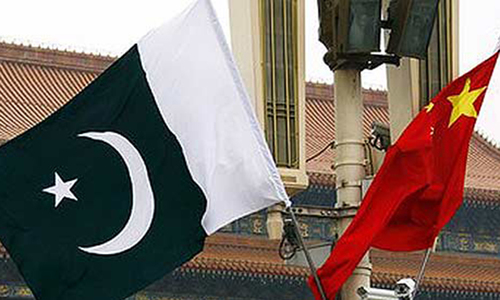KARACHI: Current account deficit widened by more than 120 per cent to $5.4 billion in July-Feb, the State Bank of Pakistan (SBP) reported on Monday.
Rising current account deficit puts the exchange rate under pressure and affects the country’s external sector. It shows the country is a net borrower from the rest of the world and uses foreign funds to meet its domestic requirements.
The deficit in trade amounted to $15.4bn in the first eight months of 2016-17, up 26.8pc from a year ago. The growing deficit is a result of rising imports — which went up 11.2pc — coupled with a decline in exports that dropped 2pc over the same period.
The current account deficit was 2.6pc as a percentage of GDP in July-Feb as opposed to 1.3pc during the same period in the preceding year.
Remittances from overseas Pakistanis shrank 2.5pc during the period under review. Low oil prices have forced oil-rich nations of the Middle East to curtail their fiscal spending. This has resulted in job losses and reduced disposable income for Pakistani expatriates in the Gulf region.
Remittances from Saudi Arabia, United Arab Emirates and United States declined 6.8pc, 1.6pc and 2.5pc, respectively, over the eight-month period.
Imports are rising partly because of the increased trade activity under the China-Pakistan Economic Corridor (CPEC). Imports under machinery, transport and petroleum groups in July-Feb rose 12pc, 38.6pc and 15.4pc, respectively.
At a recent press conference, SBP Governor Ashraf Mahmood Wathra downplayed concerns over the rise in imports since the beginning of 2016-17. He said imports included $6bn of capital goods, which would eventually help grow exports and reduce the trade deficit.
The SBP recently imposed a 100pc cash margin requirement to curtail the imports of non-essential items, such as mobile phones and consumer goods.
Banks now require importers of around 400 non-essential goods to furnish liquidity beforehand, which will reduce their imports that currently cost the country around $8.5bn a year.
The government has also announced a number of relief packages for export-oriented sectors like textile and clothing, but exports have continued their slide nonetheless. The latest in the series is a Rs180bn subsidy package for the textile, clothing, sports, surgical, leather and carpet sectors, which will remain effective until June 30, 2018.
According to the SBP, growing exports is going to be “somewhat more challenging” in view of the recent wave of anti-trade sentiment in the United States and European Union, which are Pakistan’s largest export destinations.
Citing a World Trade Organisation report, the SBP said that G20, a bloc of 20 advanced economies, applied 145 new trade-restrictive measures between October 2015 and May 2016. This came to an average of around 21 measures per month, which was the highest monthly average recorded since the beginning of the monitoring exercise in 2009.
Published in Dawn, March 21st, 2017














































